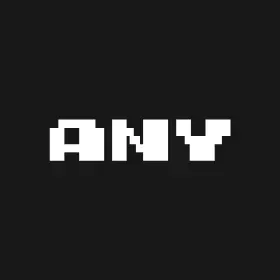We believe that any software should support fundamental digital freedoms. With the rise of cryptography and computer systems, it is now possible to guarantee these freedoms in the world of bits: privacy of thoughts, freedom of speech, right to authorship, and autonomy from software providers. These rights can be encoded into the code, which when open, can be freely verified by anyone. This way, trust among users and developers can be established.
This is our way. By opening our source code, we ensure that our users have complete autonomy and independence from the Any Association. They retain the ability to analyze, compile, and run each software component on their personal machines without relying on external parties. This guarantees uninterrupted access to the tools and data they generate and store, shielding them from any potential restrictions.
We see our products as an open ecosystem where the community can contribute in various ways, not only by committing to the core source code. Contributors can develop integrations, design themes, create use cases for the in-app library, or provide documentation and translations.



Having used it for a bit, it feels more like a Notion alternative than an Obsidian competitor. For instance, it isn’t based on Markdown and pages aren’t directly accessible on the OS filesystem (there’s some sort of pseudo-cloud storage thing going on). Its Sets and Collections feel like a different take on Notion’s databases. Some of the default examples loaded into the app are a task tracker and a movie list, two things I use Notion for right now. I’m sure there’s some feature overlap with Obsidian, but that doesn’t seem like Anytype’s primary goal.
I see. I would like to see a FOSS alternative to Obsidian but its ecosystem with plugins and such is way too useful for me as a writer, roleplayer and gamemaster that I really can’t replace it with anything else. But Anytype isn’t it then. Thanks for the comparision.
I think the only one that compares to obsidian is joplin.
Reluctant obsidian user here. One of the only non floss tools i use.
Why wouldn’t you consider Obsidian FOSS? It seems like the source code is available. I’m relatively new to open source and not trying to argue, just think that there’s a distinction that I’m missing.
Just because they have github repos for their releases and community plugins and their spec doesn’t mean they are Free and Open Source Software (FOSS).
FOSS software is developed in such a way that you can build it yourself freely (In other words, you can download the source code and compile the actual application yourself, free of charge). Obsidian doesn’t really work that way. Even if most of the code is available, the full app is only available as prepackaged binaries which might introduce god knows what (and make forking the application impossible).
At that point, it’s not FOSS, just OSS. Free means that it also uses a license that is ‘Free’ - as RMS would put it ‘libre’. So -, you can - under stipulations, do whatever you want with the Source code.
been testing trillium the last couple of days and it feels great.
It’s actually Trilium, with one L.
Never heard of it before and wanted to take a look, very difficult to find it with two Ls, as that’s the name of some large corporate software platform thing (and a flower) 😅
Does Trilium have community plugins like Obsidian? I’ve fallen head over heels for Obsidian quite recently, and the plugins are a large part of it.